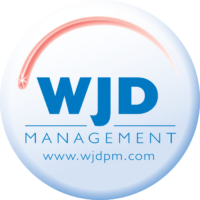Tax Advantages for Rental Property Owners
Looking for some tax advantages for Rental Property Owners? Owning an investment property or rental property in Northern Virginia is a wise investment – and there are tax deductions that you can use to your advantage as a rental property owner.
Consider this: Your investment property is an income-generating business. Typically, ROI comes through the rental income you get from your tenants.
But there might be costs you incur on an ongoing basis to make that rental income. Whether paying property taxes, doing repairs, or hiring a property manager, these expenses help you rent your property out to good tenants–but they add up!
Many of your expenses and costs ARE tax deductions. These costs can be deducted against your rental property income and should be on your radar to make the rental property an even more worthwhile investment.
Rental Property Tax Deductions
There is a multitude of tax deductions. Every property is different, and there are various costs associated with the upkeep of your rental property. These are the most common deductions you should have on your radar as a rental property owner.
Mortgage Interest
Your mortgage payment includes two parts – one part goes towards paying down your loan, and the other is the interest you pay on borrowing the money. The interest that you pay on your mortgage can be deducted against your tax bill every year.
Any fees that you paid to get your mortgage, like origination fees, are not deductible when you paid them. But you might be able to deduct them over the term of the loan.
Property Tax
Property taxes are an ongoing cost of owning a rental property. The amount of property tax you pay will differ based on the location of your property in Northern Virginia, and the value of your property.
You can deduct the amount you pay in property taxes on your tax return against your rental property income.
Depreciation
Over time, you might consider improving your property – repairing a roof, adding a new room, or a patio – which might be a large sum of money. But they may help you rent out the property at a better rent.
These are capital improvements, and they often increase the value of your property.
While you cannot deduct the total amount in your taxes in the year you paid them, you can deduct them over time. Every year, you may be able to deduct a small portion – called depreciation – to reduce your tax burden.
Some capital improvement items are:
- Replacing the roof
- A new furnace
- Changing the flooring
- Repairs
As a property owner, you will incur many ongoing expenses with your property. It could be refreshing the paint job, fixing lightbulbs, patching holes in your walls. These constant repairs are often needed to maintain your property so you can rent it out to good tenants.
You can take a tax deduction for the full cost of the repairs in the same year as you paid for them.
Some typical repairs include:
- Getting the furnace cleaned or repaired
- Painting the rooms
- Mowing the lawn
- Advertising and Professional Services
As the owner of an investment property, you may not have the time to wear all the hats in your rental property business.
You might enlist a property manager to help run the ongoing operations of your property smoothly. Maybe you want to get professional help to market your property to get better rent.
Or you might choose to get help in other administrative areas of your business – such as tax or legal.
These costs can be deducted against your rental income to reduce the taxes you owe on your rental income business.
Some common professional services are:
- Property Manager
- Accountants
- Tax Preparers
- Lawyers
- Real Estate Professionals
- Other Expenses
Every investment property is different. The expenses you incur may depend on where your property is located or how the rental property is structured. Some other expenses that many property owners have are:
- Insurance – to avoid any risk or liability related to your
- Utilities – if you pay the utilities – not your tenants – you can deduct an additional cost.
- Supplies – maybe you DIY some easy repairs. The cost of the supplies can be deducted as an expense.
- Keeping tabs on the different expenses in your business and knowing the tax rules can help you make the best return from your rental property business.
Tips for Property Tax Advantages
Keep good records
When filing your taxes, it is essential to keep good records to help prepare your tax returns and to support the items you want to deduct on your tax returns.
Supporting items such as receipts, invoices, and agreements can help you or your accountant prepare accurate tax returns. They can also give you a better idea of how your property is doing financially and whether there are areas for improvement.
Repairs and improvements
Both repairs and improvements can be expensive. It is vital to keep on top of them to ensure that your rental property is smoothly and in good shape.
There is a distinction between repairs and improvements for tax purposes, and when you can take advantage of these deductions for tax purposes.
It is vital as a rental property owner to know the differences or ask a professional so that you can best take advantage of the tax rules without being penalized.
Loss Rules for Passive investor vs. Professional
Depending on the state of your property, the location of your rental property, or general economic times, there may be months that your property remains vacant. At the same time, you might continue to incur expenses like utilities or property taxes.
The IRS places no limits if you are considered a real estate professional, but if you are a passive investor, there are limits for how much of the loss can be deducted.
It is essential to know whether you are a passive or professional investor in the eyes of the IRS. A tax professional may be able to help avoid tax penalties.
Rental Property Tax Advantages
A rental property can be a source of additional income. If you can fully take advantage of the tax rules in place, it can also offer tax deductions. Knowing the tax deductions and rules can help you generate income from your rental property for years to come.
If you are ready to rent your home, feel free to take advantage of our exclusive FREE Rental Market Analysis. Finally, don’t forget to connect with us on social media! Follow us on Facebook, Twitter, LinkedIn, Instagram, and Pinterest for tips, ideas and updates.


